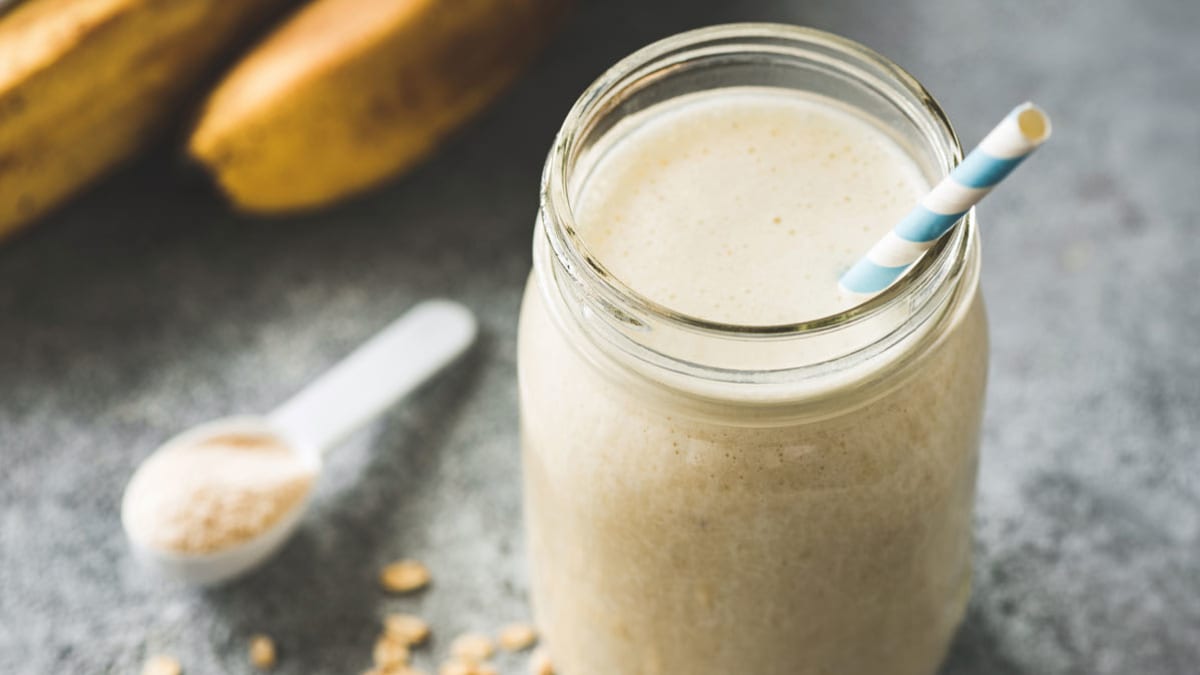
While the protein in food comes packaged with other nutrients—from calcium in yogurt to fiber in beans—drinks and powders contain ingredients like soy protein isolate, pea protein, or whey (dairy) protein. These proteins are extracted from food in a lab. Fat and carbohydrates (including fiber) are stripped out, making these highly processed ingredients. “Research has shown a link with a high intake of ultraprocessed foods and weight gain, type 2 diabetes, and premature death,” Oliveira says. The protein is then mixed with other ingredients that may not be good for you.
Sweeteners: Protein drinks can have a lot more sugar than you might expect. For instance, there are 46 grams of added sugars in one Naked Chocolate Protein Smoothie. That’s almost 12 teaspoons, more than you’d get in two scoops of Ben & Jerry’s chocolate ice cream. The drinks without sugar are typically made with noncaloric sweeteners like monkfruit, stevia, and sucralose. A body of research suggests that frequent consumption of these may increase the risk of type 2 diabetes, cancer, and heart disease.
Gums and emulsifiers: These are used to give protein drinks a thicker texture and keep ingredients from separating. They may cause digestive upset in some people or even chronic inflammation of the intestines that could lead to ulcerative colitis or other conditions. They’ve also been linked to type 2 diabetes. A 2024 study in The Lancet found that for every 0.1 to 1 gram of these additives consumed, such as carrageenan, xanthan gum, and guar gum, the risk increased 3 to 15 percent.
Source link











